Bangkok, the vibrant capital of Thailand, is a city known for its bustling streets, stunning temples, and rich cultural tapestry. However, beneath this vibrant exterior lie complex social and discrimination issues that affect various groups within the city. From gender and ethnic discrimination to economic disparities and social stigmas, these issues impact the daily lives of many residents. This article delves into the intricacies of these challenges, exploring the underlying factors contributing to social inequality and discrimination in Bangkok. By examining key areas such as education, employment, healthcare, and media representation, we aim to shed light on these pressing issues and encourage meaningful conversations around fostering an inclusive and diverse Bangkok.
The Impact of Economic Disparities on Social Inequality in Bangkok
In recent years, economic disparities in Bangkok have significantly contributed to social inequality. While the city boasts a booming economy, with impressive skyscrapers and a thriving tourism industry, the gap between the wealthy elite and those living in poverty is stark. This division is particularly evident in the spatial distribution of resources and services, where affluent areas enjoy better infrastructure, education, and healthcare facilities compared to marginalized communities.
The economic shocks resulting from global events like the COVID-19 pandemic have further exacerbated these disparities. The pandemic led to widespread job losses, affecting low-income individuals and families the most. With limited access to social safety nets, many were pushed further into poverty, struggling to meet basic needs such as food, housing, and healthcare. This dire situation has heightened tensions within the community, with increased reports of violence, exploitation, and abuse as people grapple with economic uncertainty.

Several factors contribute to economic inequality in Bangkok. Firstly, the urban-rural divide is pronounced, with the city center receiving the majority of investments and resources. This is compounded by a lack of opportunities for decent employment in rural areas, driving migration to the city and placing immense pressure on urban resources. Consequently, the influx of low-skilled workers has resulted in overburdened infrastructure and inadequate housing, perpetuating the cycle of poverty.
Moreover, education plays a pivotal role in perpetuating economic disparities. Access to quality education is often determined by socioeconomic status, with children from affluent families attending prestigious private schools, while those from poorer households rely on underfunded public schools. This educational divide limits social mobility and reinforces the existing class structure, making it difficult for individuals from marginalized backgrounds to secure better job opportunities and improve their living standards.
Efforts to address economic inequality in Bangkok require a multifaceted approach. Policymakers must focus on creating equitable access to education, healthcare, and employment opportunities. Initiatives such as vocational training programs and microfinancing schemes can empower individuals to break free from the cycle of poverty. Additionally, promoting fair wages and labor rights can help reduce the exploitation of low-wage workers.
In conclusion, addressing economic disparities is crucial for achieving social equality in Bangkok. By prioritizing inclusive policies and investing in marginalized communities, the city can move towards a more equitable future where all residents have the opportunity to thrive.
Gender Discrimination and Its Effect on Social Inclusion
Gender discrimination remains a significant barrier to social inclusion in Bangkok. While Thailand is often celebrated for its acceptance of diverse gender identities, discrimination and stigma continue to persist, particularly against women and LGBTQ+ individuals. These challenges are evident in various aspects of life, including education, employment, and healthcare.
In educational institutions, gender discrimination manifests through sexist attitudes and practices that hinder the full participation of female students. Stereotypes about gender roles and expectations often limit the subjects and careers that young women pursue, discouraging them from entering traditionally male-dominated fields such as science, technology, engineering, and mathematics (STEM). Additionally, reports of harassment and bullying against LGBTQ+ students highlight the need for more inclusive policies and safe learning environments.
The workplace, too, is fraught with gender discrimination. Women and LGBTQ+ individuals face barriers such as unequal pay, lack of representation in leadership roles, and pervasive gender-based harassment. The absence of robust anti-discrimination laws further compounds these issues, leaving many without recourse in cases of unfair treatment. As a result, talented individuals are often sidelined, reducing the diversity and innovation potential within organizations.
Healthcare is another sector where gender discrimination is alarmingly prevalent. LGBTQ+ individuals often encounter stigma and bias from healthcare providers, leading to inadequate care and reluctance to seek medical assistance. Transgender individuals, in particular, face challenges in accessing gender-affirming treatment and are frequently subjected to invasive questions and discriminatory practices at healthcare facilities.
Addressing gender discrimination requires a comprehensive strategy that involves multiple stakeholders, including government agencies, educational institutions, and private sector organizations. Key actions include implementing gender-sensitive policies, promoting diversity and inclusion training, and creating support systems for victims of discrimination.
Community awareness campaigns play a vital role in challenging stereotypes and raising awareness about gender diversity. Initiatives such as the Bangkok Pride parade and collaborations with organizations like UN Women and the Bangkok Activist Network serve to amplify the voices of marginalized communities and advocate for their rights.
In summary, while progress has been made in promoting gender equality in Bangkok, significant challenges remain. By fostering a more inclusive society that respects and values all gender identities, the city can harness the full potential of its diverse population.
Media Representation and Its Role in Perpetuating Social Stereotypes
Media representation plays a critical role in shaping public perceptions and attitudes towards different social groups in Bangkok. Unfortunately, media outlets often perpetuate social stereotypes and contribute to the marginalization of minority groups. This section examines the impacts of media representation on social discrimination and offers insights into how media can be leveraged to promote inclusivity and diversity.
The media landscape in Bangkok is diverse, with numerous television channels, radio stations, print media, and digital platforms. Despite this diversity, media coverage often falls short in representing the varied experiences and perspectives of all demographics. Instead, stories tend to focus on sensationalist narratives that reinforce negative stereotypes, particularly about minorities and marginalized communities.
A notable example is the portrayal of transgender individuals. Television shows and movies frequently depict transgender people in a comedic or villainous light, reducing their complex experiences to caricatures. This misrepresentation not only dehumanizes transgender individuals but also perpetuates harmful misconceptions that contribute to societal stigma and discrimination.
The impact of such media portrayals extends beyond entertainment. They influence public perception, shaping attitudes towards transgender individuals and reinforcing exclusionary behaviors. This, in turn, affects the lived experiences of many, who face discrimination not just in social settings but in areas such as employment and healthcare.
Another concerning media trend is the sensational coverage of crime stories involving minority groups. By focusing disproportionately on crimes committed by individuals from marginalized communities, media narratives can create a distorted view of these groups, leading to increased xenophobia and societal division.
Efforts to reform media representation and promote positive narratives are essential. Media organizations should prioritize diversity and inclusion both in their reporting and within their workforce. This involves actively seeking out and amplifying voices from underrepresented groups, promoting stories that highlight their contributions and challenges.
Training journalists to recognize and avoid bias in their reporting is also crucial. This can be achieved through partnerships with organizations like Human Rights Watch and Voices for Change, which offer resources and support for ethical journalism that respects human rights and equality.
Ultimately, redefining media narratives is a collective effort that requires the involvement of media professionals, policymakers, and the public. By leveraging media as a tool for positive change, Bangkok can work towards a more inclusive society that values and respects its diverse population.
The Intersection of Ethnic and Gender Discrimination
In Bangkok, the intersection of ethnic and gender discrimination presents unique challenges for many residents. Individuals who identify with multiple marginalized identities often face compounded discrimination that limits their opportunities and negatively impacts their quality of life. Understanding these intersectional issues is crucial for addressing broader social inequalities.
Ethnic minorities in Bangkok, such as the Tai Yai and Tai Lue communities, often experience discrimination due to their cultural practices, language barriers, and socioeconomic status. These challenges are further intensified for those who identify as LGBTQ+, as they face additional prejudice based on their gender identity or sexual orientation.
Educational Barriers: Ethnic minority students who are also part of the LGBTQ+ community face significant educational barriers. They are often subjected to bullying and may struggle with limited access to resources that support their educational growth.
Employment Discrimination: Finding gainful employment is yet another challenge. Employers may reject these individuals based on prejudices related to their ethnicity and gender, resulting in limited job opportunities and economic instability.
Healthcare Inequality: In healthcare settings, these individuals encounter biases that lead to inadequate care and discrimination. The lack of cultural sensitivity and understanding of intersectional identities among healthcare providers exacerbates this issue.
Efforts to combat intersectional discrimination in Bangkok require a multi-pronged approach. Educational institutions must implement anti-bullying policies and promote cultural competence training to create inclusive environments for all students. Employers should establish diversity and inclusion policies that recognize and respect the unique experiences of intersectional employees.
Additionally, healthcare providers must be trained to deliver culturally sensitive care that addresses the specific needs of ethnic and gender minorities. By incorporating intersectionality into policy-making and service delivery, Bangkok can create a more equitable society where all residents can thrive.
Diverse community initiatives, such as those led by organizations like Thai Equal Rights, are instrumental in advocating for the rights of intersectional individuals. By fostering dialogue and collaboration across different sectors, these initiatives work towards reducing discrimination and promoting social cohesion.
In summary, addressing intersectional discrimination is crucial for achieving broader social equity in Bangkok. By implementing targeted interventions and fostering an inclusive culture, the city can empower individuals from all backgrounds to reach their full potential.
Advocating for Change: Grassroots Movements and Policy Initiatives
The fight against social discrimination in Bangkok is strengthened by grassroots movements and policy initiatives that advocate for equality and inclusion. In recent years, several organizations and advocacy groups have emerged to challenge discriminatory practices and promote social justice.
Grassroots movements, often led by passionate individuals and community members, play a pivotal role in driving change from the ground up. These movements harness the power of collective action to raise awareness, mobilize support, and influence public opinion on key issues such as gender equality, LGBTQ+ rights, and ethnic minority representation.
One such example is the rise of the Bangkok Activist Network, which organizes campaigns and events to address a wide range of social issues. Through collaborations with other organizations, this network amplifies the voices of marginalized communities, calling for policy changes that reflect their needs and aspirations.
Policy initiatives at the governmental level are also crucial in addressing social discrimination. Legislators in Bangkok have been working towards implementing anti-discrimination laws that protect the rights of all citizens, regardless of their gender, ethnicity, or sexual orientation. These laws aim to ensure equal opportunities in employment, education, and healthcare, fostering a more equitable society.
Furthermore, initiatives like Women on Waves focus on empowering women and promoting gender equality across various sectors. By advocating for policies that support women’s rights and representation, they contribute to reducing gender disparities and enhancing social inclusion in Bangkok.
However, achieving lasting change requires ongoing collaboration between government bodies, civil society organizations, and the private sector. Establishing platforms for dialogue and cooperation can facilitate the exchange of ideas and best practices, leading to more effective solutions to social discrimination.
In conclusion, grassroots movements and policy initiatives are essential components in the fight for social equality in Bangkok. By continuing to push for reforms and championing the rights of marginalized groups, these efforts contribute to building a more inclusive, diverse, and harmonious society.
Frequently Asked Questions (FAQ)
What are the main social discrimination issues in Bangkok?
Key issues include economic disparities, gender discrimination, ethnic and gender-based discrimination, and media representation that perpetuates stereotypes.
How does media representation affect public perceptions in Bangkok?
Media often reinforces negative stereotypes of minority groups, influencing public attitudes and contributing to societal stigma and discrimination.
What are some initiatives addressing social inequality in Bangkok?
Organizations like Bangkok Pride, UN Women, and the Bangkok Activist Network lead initiatives to promote equality and advocate for underrepresented communities.
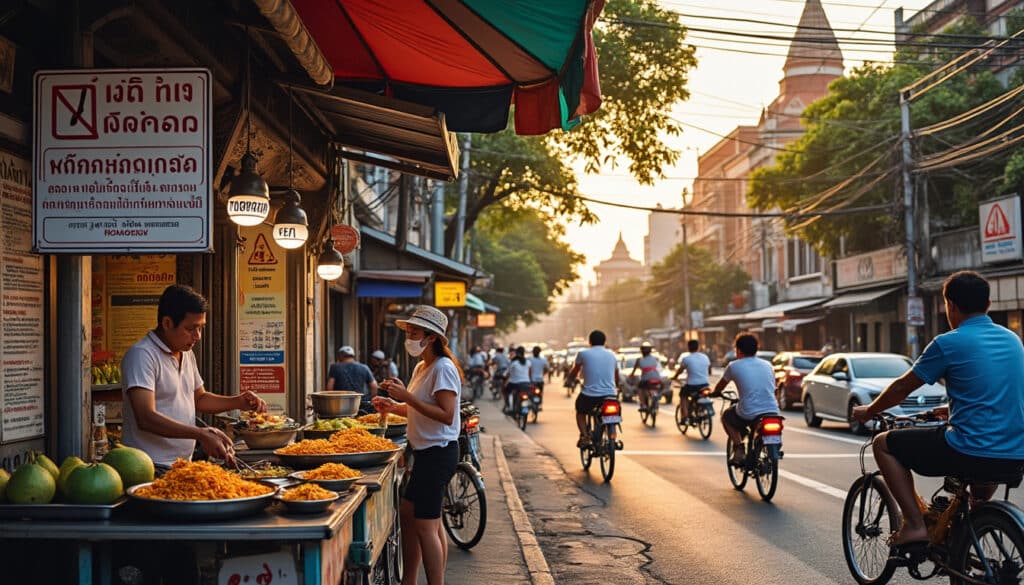
Legal Information and Rules in Bangkok
Bangkok, a mesmerizing blend of tradition, innovation, and vibrancy, is not only renowned for its bustling street food scenes and magnificent temples but also for its intricate and unique legal landscape. As travelers and new residents flock to this cultural…
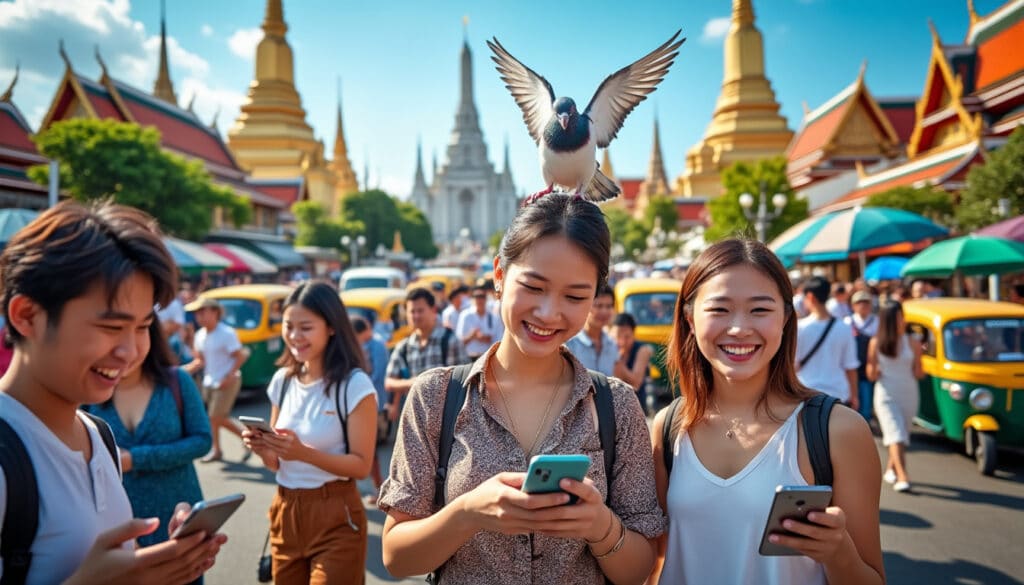
Calling and communication rules in Bangkok
In the bustling metropolis of Bangkok, where cultures merge and the old harmonizes with the new, understanding the nuances of communication can vastly enhance your experience, whether you’re a visitor or a resident. From navigating phone codes to mastering the…
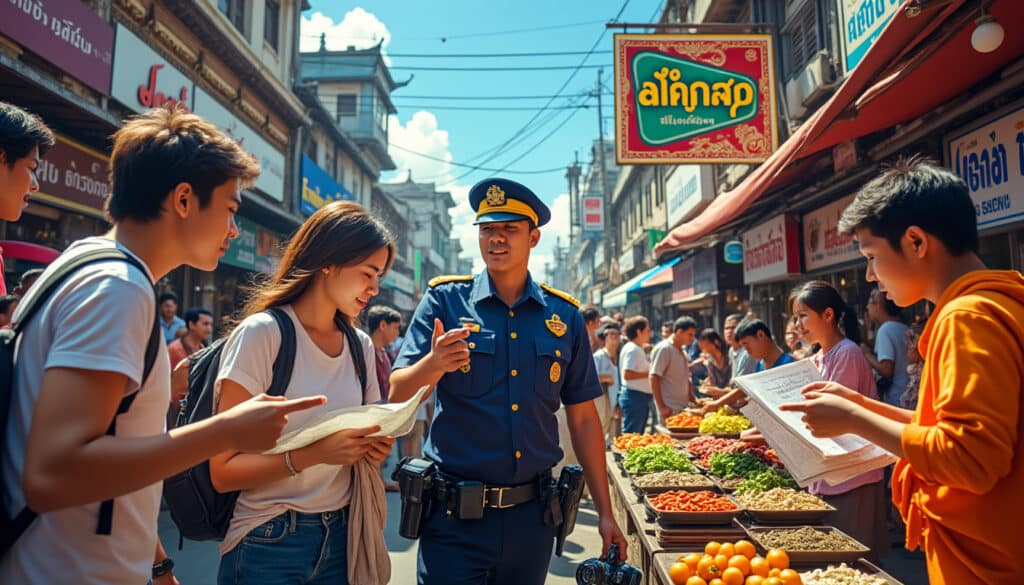
Criminal status and entry to Bangkok
Considering a trip to Thailand can be an exciting venture for many travelers but poses a unique set of challenges for those with a criminal record. Known for its vibrant culture, delicious cuisine, and picturesque landscapes, Thailand is a hotspot…
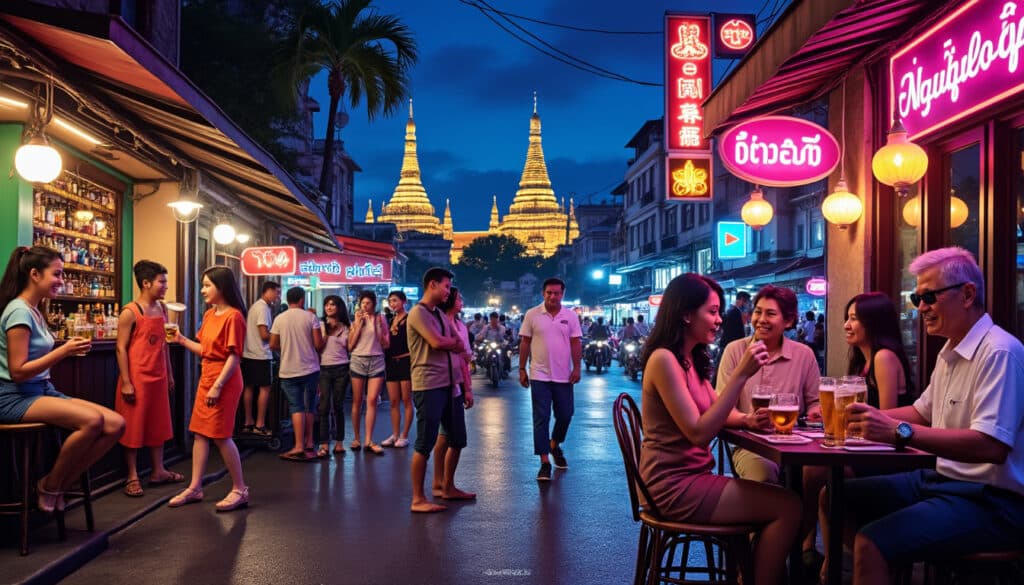
Drinking and age restrictions in Bangkok
When you think of Bangkok, images of bustling night markets, lively street vendors, and world-renowned nightlife may come to mind. However, behind the neon lights and festive atmosphere, there are important legal frameworks that govern alcohol consumption in this vibrant…

Join us in exploring the enchanting tapestry of holiday openings in Bangkok, where vibrant festivals and public holidays paint a unique picture of this bustling metropolis. As a city that never sleeps, Bangkok balances its rich cultural traditions with modern…
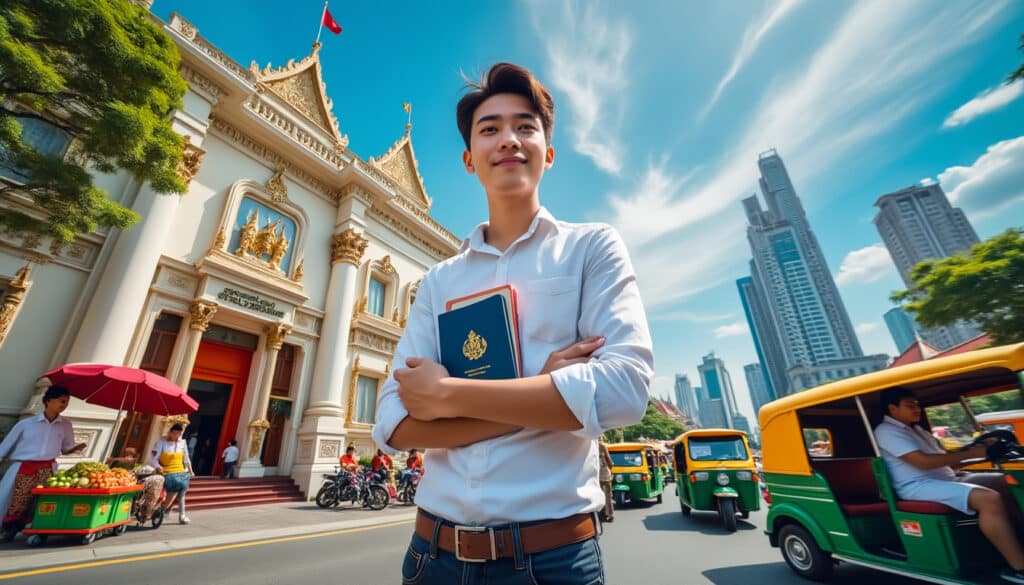
How to move to Bangkok legally
Bangkok, known as the “Big Mango” and the “City of Angels,” is a city that attracts expats from around the globe. Its bustling streets, rich cultural tapestry, and tantalizing cuisine make it an irresistible destination for those seeking new adventures.…

Smoking, drugs, and red light laws in Bangkok
In recent years, Bangkok has captivated the world with its seamless blend of modernity and tradition. Yet, amidst the vibrant culture and dynamic nightlife, there’s a complex tapestry of laws governing smoking, drug use, and the infamous red-light districts. With…

